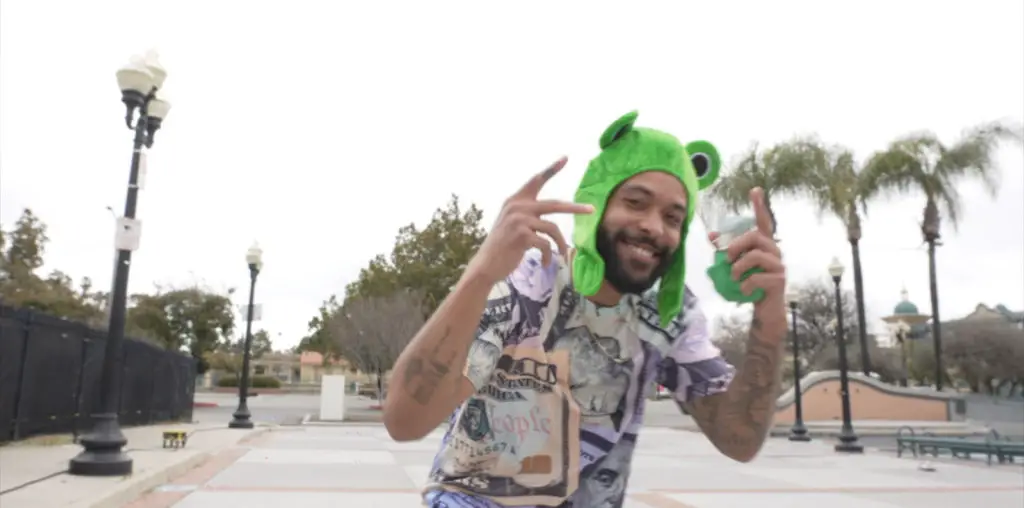
If you don’t enjoy movies that challenge you, then run away from “Synecdoche New York” as fast as you can. If you haven’t clicked away from this review after reading the first sentence, then I assume you don’t mind watching films that thumb their noses at an industry obsessed with traditional three-act structures and “Hero With a Thousand Faces.”
The basic synopsis of “Synecdoche” that you’ll read many places, including the back of the DVD case, goes something like this: Caden Cotard is a theater director living in Schenectady, New York. After his wife takes his daughter Olive to Germany – ostensibly for her art career but actually because she’s through with him – he falls into a deep depression that seems to manifest itself into a degenerative disease. When he receives a MacArthur Fellowship, he pours the grant money into an ambitious theater project, building a scale replica of New York City in a warehouse and staging an enormous play with thousands of actors. Along the way, he struggles with relationships with women, pines for his wife, and attempts to reconnect with Olive, who is no longer the little girl he once knew.
That’s the gist of it, but there’s much more: Cotard casts someone to play himself, as well as an actress to play Hazel, his former girlfriend and current assistant. Then he builds a replica of the warehouse within the warehouse, and the man playing him must now find someone to play him within that nested world, along with someone to play the role of the woman assuming the role of Hazel. By the end, there’s a warehouse within the warehouse within the warehouse. And so on.
You may wonder: Why is Hazel’s house always burning? Why does the film throw continuity out the window and bounce around through time? How can the book Cotard is reading abruptly conclude, complete with hundreds of blank pages, after he spurns its author’s advances? Why does Dianne Wiest’s character suddenly play a major role toward the end? I’m sure you have even more questions beyond those.
I can only answer thus: Have you ever had a dream that started out normal but took a sudden left turn, skewing reality in such a way that everything was slightly off-kilter? Perhaps that dream then merged with another one, but the continuity felt like one dream reality.
The same logic applies to “Synecdoche, New York.” Is it a meta commentary on the theater business? Is it one large metaphor for a man’s life, akin to shadows on a cave wall? For example, the adult Olive dancing in a box with a glass front could be a metaphor for his inability to connect with her later in life, and the burning house could represent the destructive nature of his affair with Hazel. In essence, we’re not seeing Caden Cotard’s real life; we’re seeing a representation of it, via a continuous stream of metaphors.
Or is it the film industry’s “Finnegans Wake”? All of them? None of them? I can’t give you the answer; I can only suggest possible paths to explore. You might want to start by looking up the neurological syndrome known as Cotard delusion. There’s also an intriguing interview with writer/director Charlie Kaufman on the Twitch web site.
You may also want to start your post-“Synecdoche” musings with the 36-minute bloggers roundtable that’s part of this disc’s generous bonus features. It goes beyond the cursory thoughts I’ve offered here. It even uses the word “solipsistic,” so you know it’s Genuine Thinking Material. But seriously, it is a nice discussion.
You might think the 27-minute “NFTS/Script Factory Master Class with Charlie Kaufman” would reveal additional insights, but it’s actually a cursory look at his career, with a few questions thrown in about each film. “Synecdoche” is part of that, of course, but Kaufman doesn’t offer as much insight as he does in that Twitch Q&A.
“In and Around ‘Synecdoche, New York'” (19 minutes) and “The Story of Caden Cotard” (12 minutes) delve more into the film. The former is a standard behind-the-scenes piece with comments from the major players, while the latter is an interview with Philip Seymour Hoffman, who offers some interesting thoughts on his character. Finally, we have the theatrical trailer and the full six minutes of the animations that Cotard’s daughter watches on TV.
“Synecdoche, New York” may have been a box office bomb (a couple of the bloggers mention hostility directed toward it at the screenings they attended), but I think in the years to come, it will be recognized for its brilliance. I’m not a fan of weird for the sake of weird (I think David Lynch is guilty of that, which is why his films usually leave me cold), but “Synecdoche” adheres to its own logic, if you pay attention to what’s happening below the surface, and I think many will eventually come around to the film.
